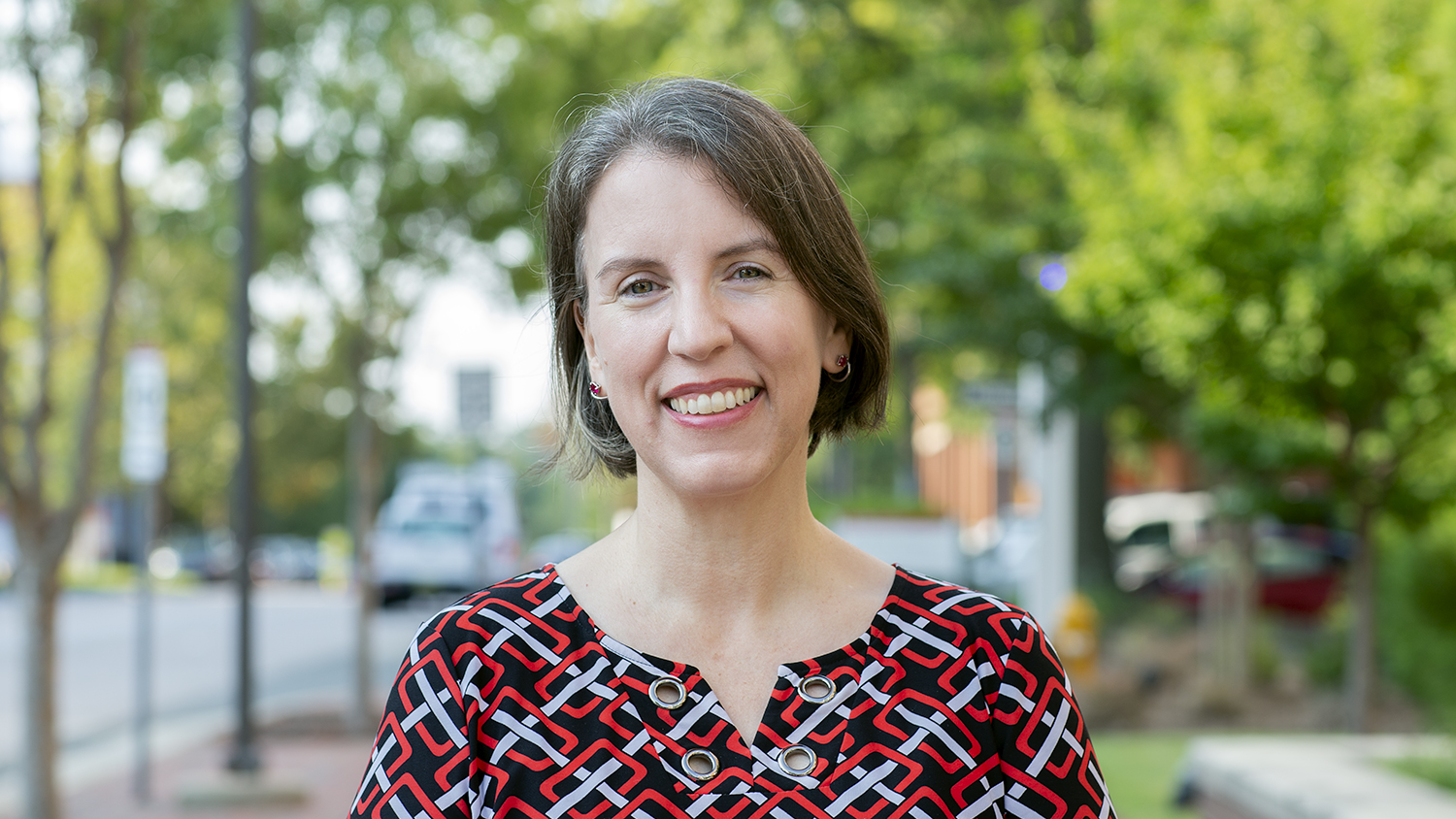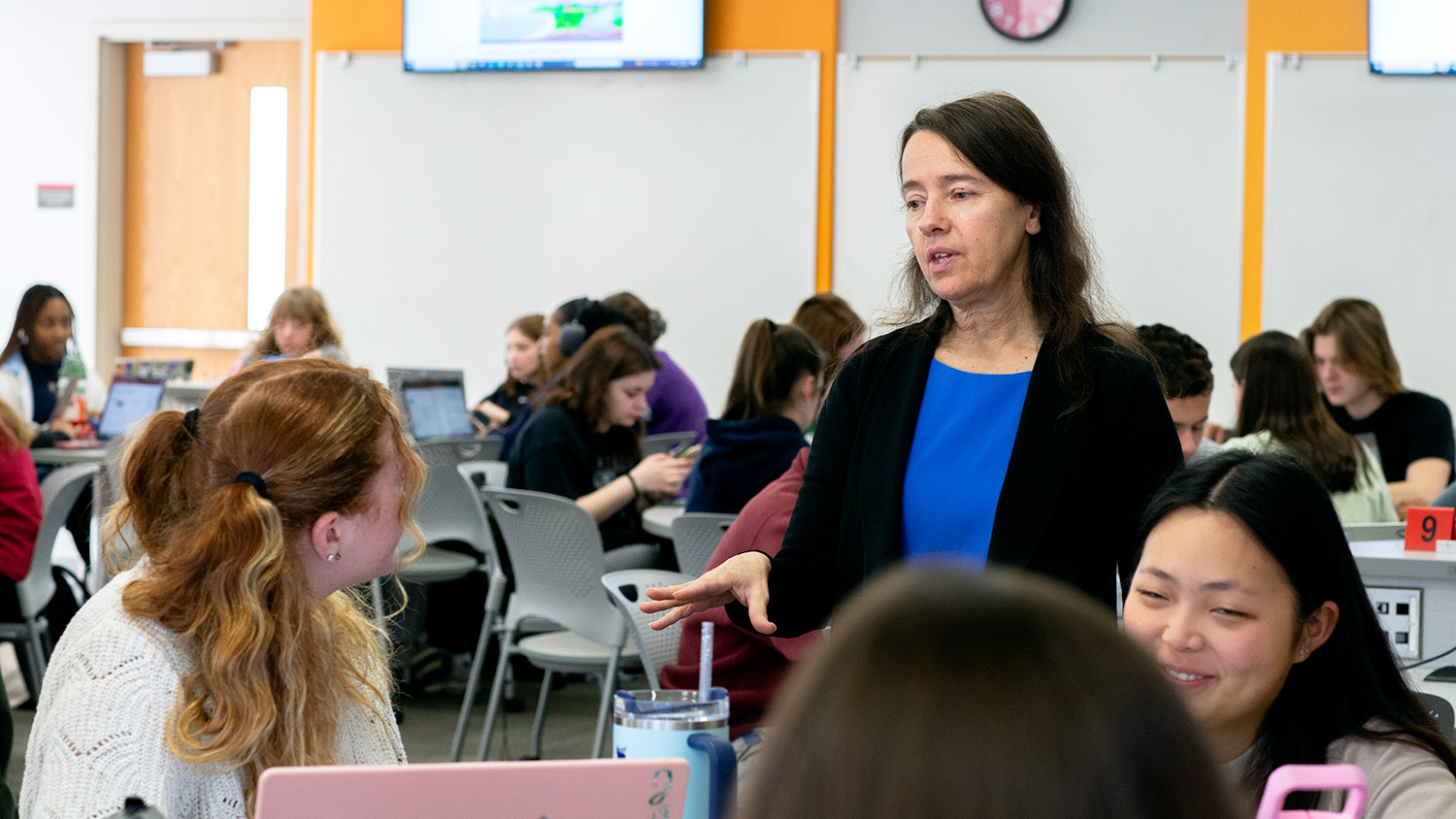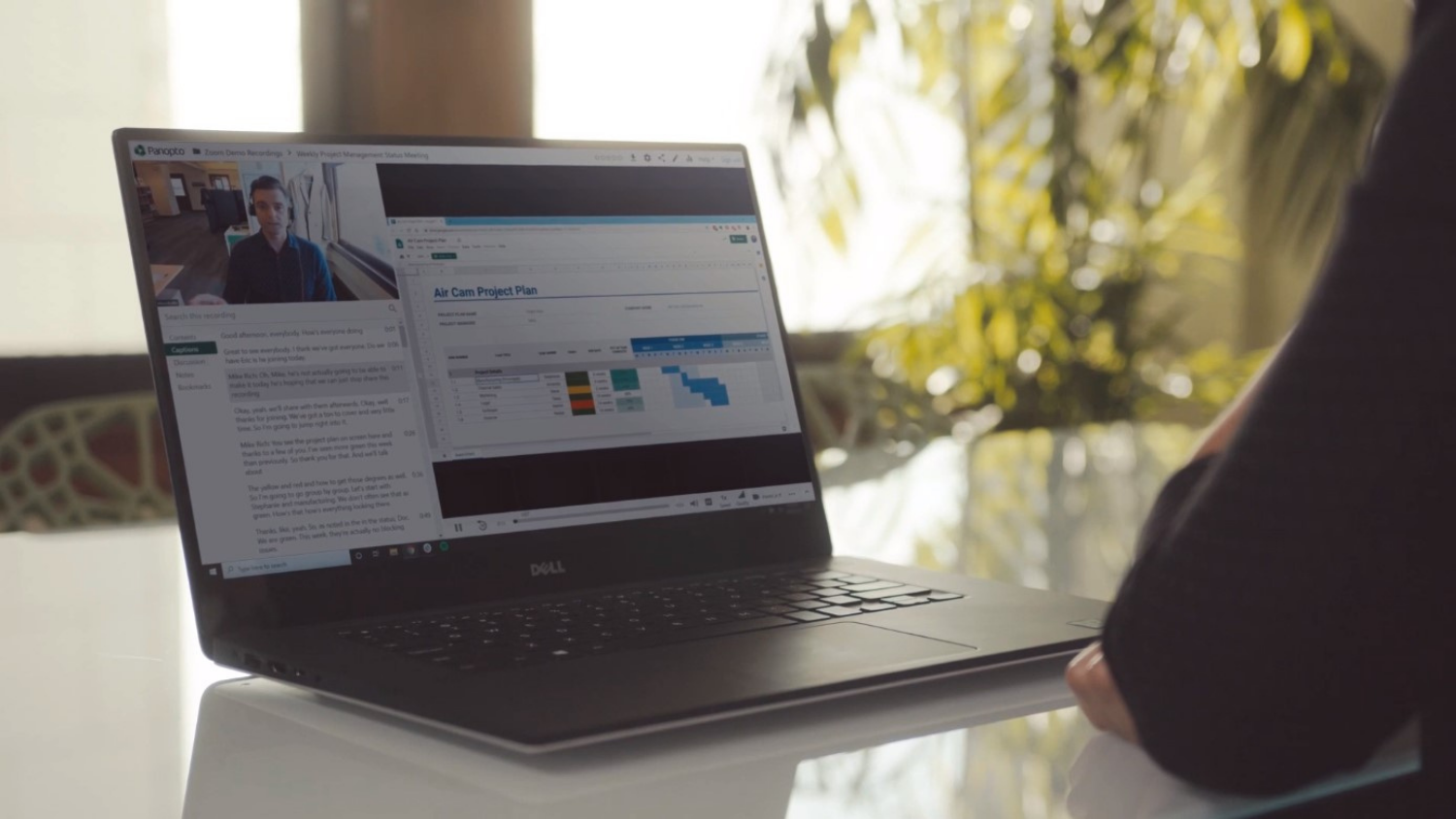Meet DELTA Faculty Fellow Sarah Egan Warren

Assistant Teaching Professor and DELTA Faculty Fellow Sarah Egan Warren looks for innovative methods that support her teaching initiatives and her students, as evidenced by over two decades of experience at NC State. Throughout her career, she has taught and developed in-person, hybrid and online workshops and courses.
Egan Warren began her teaching journey at NC State in 1999 as a graduate teacher assistant (GTA) for the professional writing program (PWP) in the College of Humanities and Social Sciences (CHASS). Her degrees include a Doctor in Educational Leadership, Policy, and Human Development and a Master of Science in Technical Communication, both from NC State University, and a Bachelor of Arts from James Madison University.
Currently, Egan Warren teaches ethical data storytelling — both writing and speaking — at the Institute for Advanced Analytics (“the Institute”), where she created and now teaches the ethical data storytelling curriculum.
Acquired Teaching Methodologies
With the pivot to online learning in 2020 caused by the COVID-19 pandemic, Egan Warren was prepared. In fact, she developed and taught the first fully online version of a PWP course in 2001 and trained other instructors to teach online.
“Over two decades ago, I worked closely with what is now DELTA Learning Technology to prepare to teach online classes,” Egan Warren said. “When it came time to adapt to online learning at the Institute in 2020, I felt comfortable leading the effort to move content online.”
Egan Warren developed a pacing guide to help faculty, staff and students know what to do each day. In addition, she created and shared best practices resources for online teaching and learning. The Institute faculty created videos with PlayPosit interactions, developed strategies to manage large classes on Zoom, guided group work on Google Docs and Sheets, and used Slack to replace “hallway” conversations.
“Because I had worked through some of the challenges already, I felt well-positioned to make the shift from high-touch, in-person classes to high-touch, online classes,” Egan Warren said.
“There is a misconception that online learning is not interactive, but there are many ways to engage and connect. Using instructional technology, we found effective ways to deliver content and achieve successful student outcomes.”
Inspiration
When contacted about the Faculty Fellows program last spring, Egan Warren was not familiar with the program. However, after she read about it, she was honored to be considered and applied.
“I am thrilled to become a part of this group,” Egan Warren said. “I am especially excited to reconnect with Miriam Ferzli, because we worked together many years ago with the graduate school on GTA training initiatives.” Ferzli and Egan Warren were selected as Faculty Fellows in the same cohort.
Egan Warren appreciates how new technology can improve the way she develops and delivers content as well as evaluates student outcomes. She understands that sometimes the learning curve for a new technology can be overwhelming but continual process improvement is worth it.
“I am a big fan of DELTA workshops, videos and consultations to get to the answers I need with instructional technology,” Egan Warren said. “In the last few years, I have focused on using Tableau as a tool to highlight students’ progress and areas for improvement. It is both challenging and rewarding to discern how to best incorporate dashboards into my teaching.”
Goals
As a Fellow, Egan Warren wants to explore the role of ethical communication beyond the classroom. Although she has incorporated ethics into her curriculum her entire teaching career, in the last few years, she has been more explicit about how ethical communication interacts in all fields.
“When we communicate, we have power to conceal or reveal information. The choices we make about what is included or excluded, or who is included or excluded, shape everything. That is powerful stuff!”
Egan Warren is also excited to collaborate with others to determine methods for positive change throughout the university community.
“I am interested in what data tells us about our teaching, our students’ learning and our processes,” Egan Warren said. “As a DELTA Faculty Fellow, I have three primary goals. First, I want to share how I use dashboards to visualize student progress and areas for improvement. Next, I want to create data-driven resources that instructors can use to support ethical presentation skills, both in person and online. Finally, I want to test newer DELTA technology, such as IntelliBoard and MoodleNet.”
Keeping students and their well-being in mind, Egan Warren remains focused on how emotion plays an important role in learning. For example, she uses a Google form at the beginning of each class to check on students’ well-being.
“Using this form provides an assessment of how things are going,” Egan Warren said. “When students are stressed or upset, I can reach out and offer referrals for support. I let my students know that I see them and am interested in how they are. Importantly, more faculty are interested in student wellness and checking in with students. I partnered with colleagues Lisa Paciulli, Maria Gallardo-Williams, and David Tully to create the How are you doing, Wolfpack?! Project — a collection of wellness check-in options for faculty that is housed on the NC State Library website.”
Egan Warren hopes that she can continue to provide a positive learning environment for all students.
“Despite the challenges of the last couple of years, we managed to create a community, encourage communication between students and faculty, and stay connected with students,” Egan Warren said.
Interested in sharing your knowledge and learning from other instructors? Apply for DELTA’s Faculty Fellow program! Applications will be accepted beginning April 3, 2023 as part of this year’s DELTA Grants cycle.


